5 major security changes Michigan State students can expect this fall
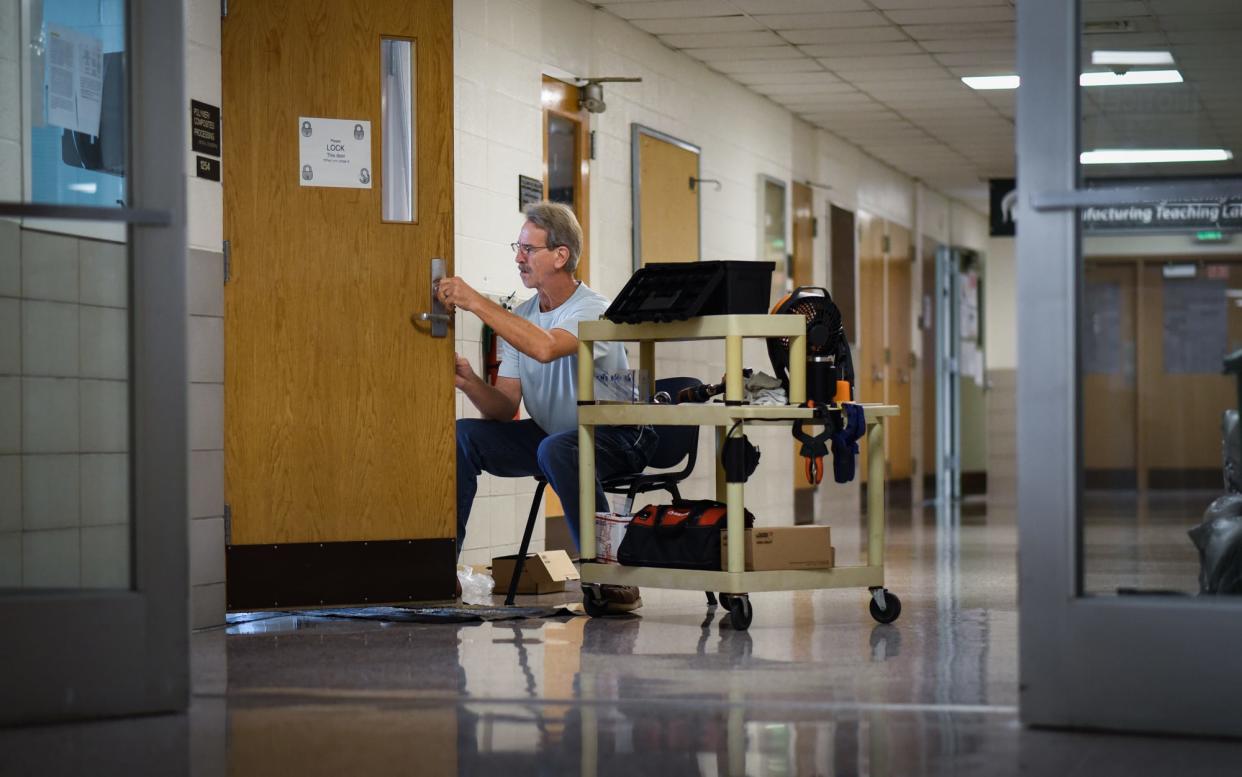
EAST LANSING — In the six months since a gunman shot and killed three Michigan State University students and wounded five others, school staff have introduced a variety of security upgrades, both to procedures and infrastructure, intended to prevent another tragedy.
Many students expressed frustration with the lack of interior locks on many classroom doors, inconsistent alert systems and open access to MSU facilities. In the months since, administrators have worked to ease students' concerns and implemented a host of security measures that officials say will hopefully provide peace of mind for community members.
Shortly after the shooting, MSU restricted access to most buildings during late hours for those with MSU IDs, meaning only students and faculty could access buildings outside of general class hours. Since then, the university has developed and implemented other measures, including expanding the number of internal door locks, installing more cameras, strengthening alert systems and developing active violence incident training.
One change initially promised to staff and students — a goal of having new locks installed on all classroom doors by the time classes began Aug. 28 — won't happen, officials told the State Journal. They blamed the delay on supply change issues.
"We’ve continued to make progress on door installations throughout the summer with most of the door locks scheduled to be installed by the start of the fall semester," MSU deputy spokesperson Dan Olsen said. "Due to supply chain issues, we will have some doors that will be outfitted with new locking devices into the fall semester."
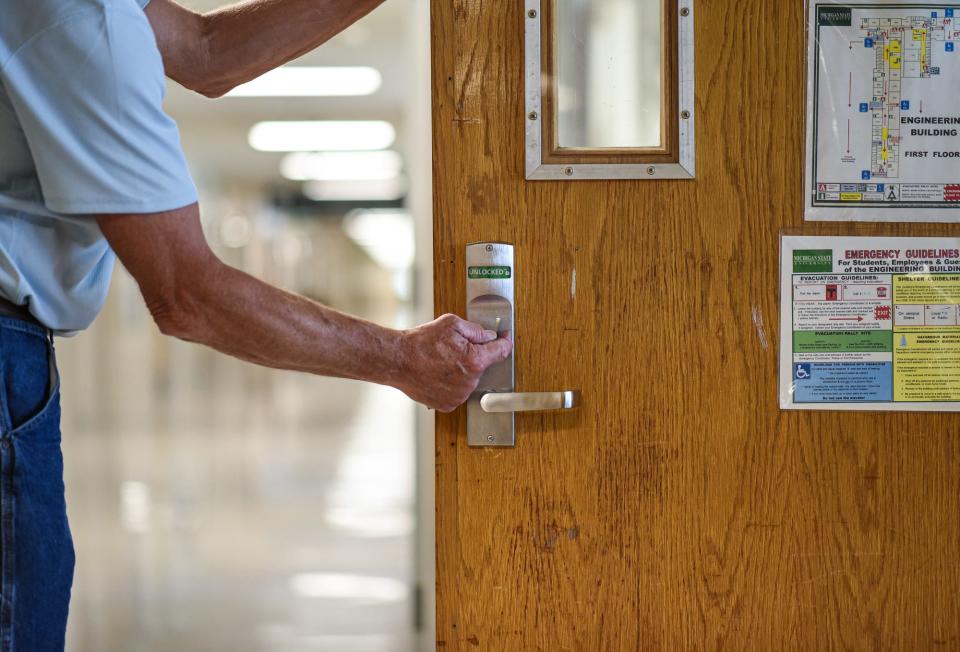
MSU has more than 1,300 academic classrooms, 712 of which were identified as needing lock upgrades or installation, Dana Whyte, spokesperson for the MSU Department of Police and Public Safety, said. As of July 31, fewer than half of those rooms, 333, had locks installed.
Whyte said the university plans to cover a majority of the 712 classrooms by the time students return for fall classes and to complete installations by the end of the semester.
The remaining 600 or so classrooms already had a combination of locks in place, including standard handle locks, MSU ID access and push bar doors, Whyte said.
MORE: 5 major security changes Michigan State students can expect this fall
MSU interim President Teresa Woodruff had committed to a goal "to have locks installed on all (classroom) doors by the beginning of the fall semester," but by early June officials said they expected to have "many" of the locks installed when classes started but didn't offer specifics.
Under the current timeline, about 1,000 of the university’s classrooms would have adequate locking mechanisms when classes start.
Whyte acknowledged campus may look a bit different this semester as university administrators try to accommodate students’ concerns.
Here are four other major changes students and staff can expect:
Keycard access
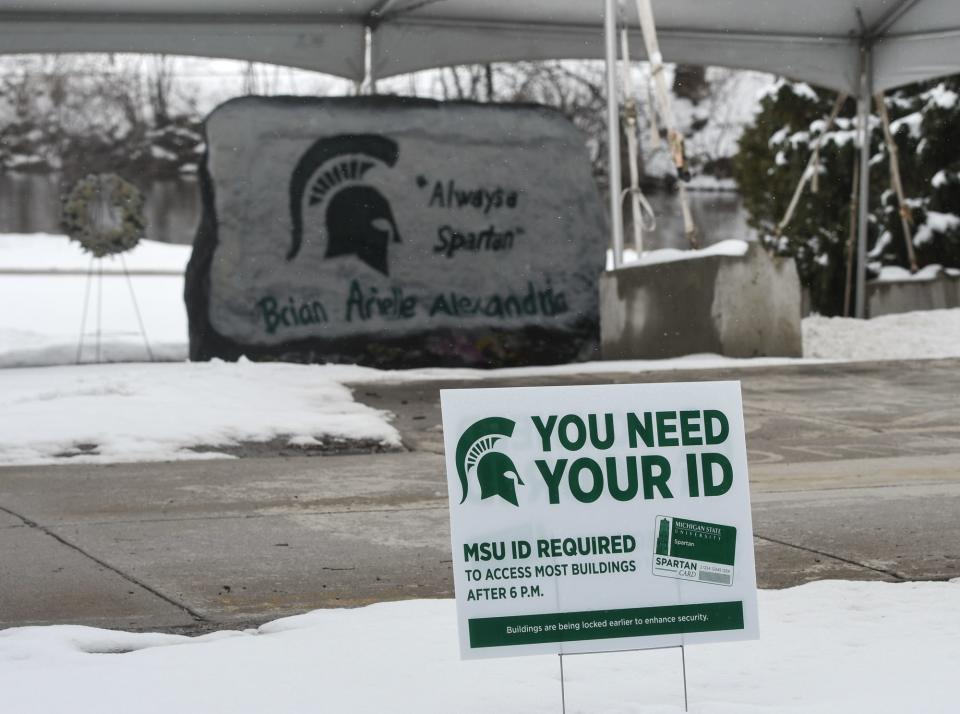
MSU facilities will continue a policy instituted in the spring of requiring ID scans to access campus buildings during certain hours.
Students and faculty members will have to scan their MSU ID at entrances to most on-campus buildings from 6 p.m. to 7:30 a.m. on weekdays, and all day on weekends. The main library will require visitors to scan in from 10 p.m. to 7:30 a.m. from Sunday through Thursday nights.
MORE: Balancing act: How MSU plans to keep campus safe without being 'overbearing'
MSU alumni will not be able to use previously held student IDs to enter buildings, Whyte said.
Whyte said the policy is not yet permanent and administrators will continue to evaluate the policy.
Security Operations Center expected online soon
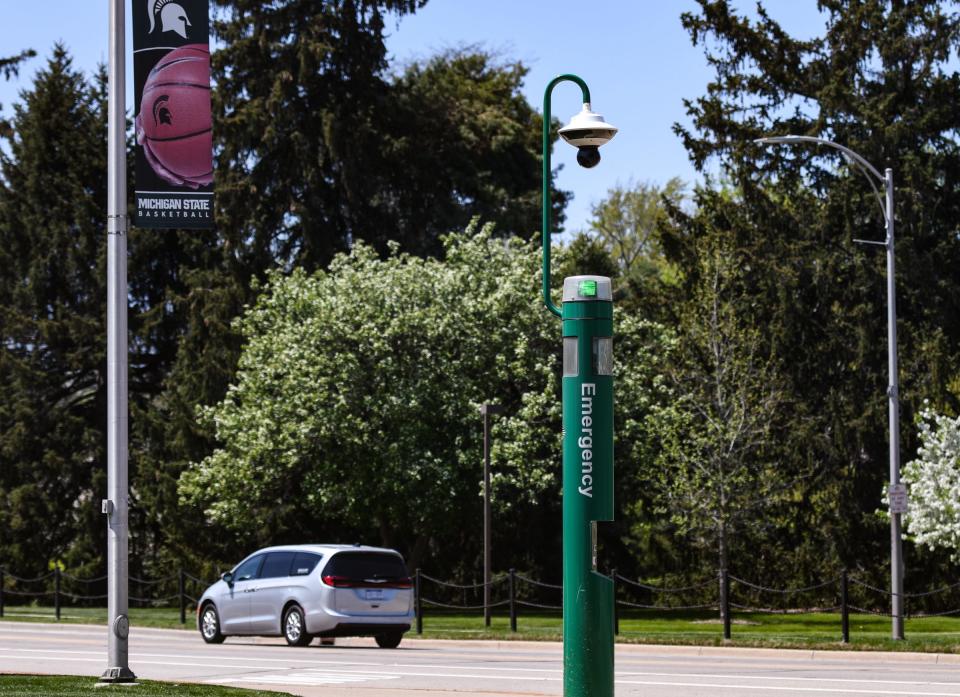
MSU is in the process of centralizing the monitoring of campus security systems to allow for greater efficiency in tracking threats.
The Security Operations Center will monitor cameras, access control and the MSU alert system. Whyte said coordinators already have been hired and are currently onboarding with the police department.
The center will become operational sometime during the fall semester, she said.
During the shooting, notification of the public and the search for the suspect were complicated by the significant police response and unintegrated security systems.
About 13 minutes passed between the first report of shots fired and alerts being sent to the MSU community, which deputy Police Chief Chris Rozman told Bridge Michigan was due to all officers quickly responding to the scene. MSU police walked back that claim days later, and said a “front-desk employee” sent out the alert with the approval of a shift supervisor.
The university also acknowledged an inability to monitor surveillance cameras live hampered their ability to quickly pinpoint a suspect.
The department at the time was monitoring "intrusion and duress" alarms at its front desk, which was often staffed with student employees, John Prush, director of Public Safety Operations Bureau, told the State Journal earlier this year. The school's plan will move those operations away from a public-facing desk and use full-time employees, in addition to some students, he added.
MSU has expanded its system of more than 2,000 security cameras, but Whyte declined to provide specifics.
MSU alert system
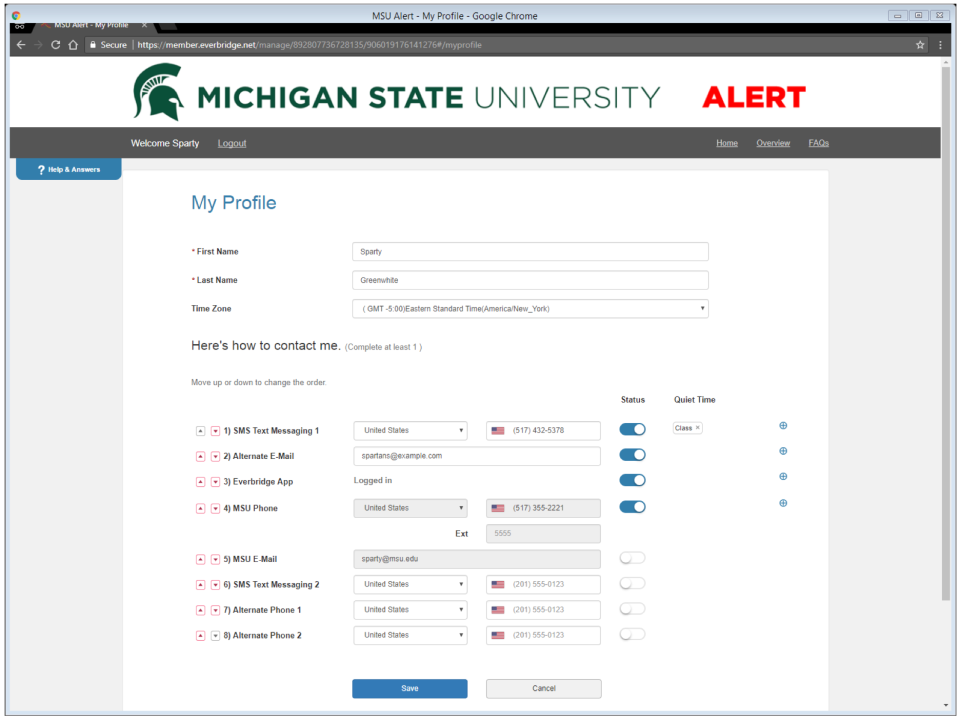
MSU has expanded its alert system since February, so students have more opportunities to be notified in emergencies when they may not have access to their phones.
The Safe MSU app — which Whyte encouraged all MSU community members to download — is now integrated with the university’s alert system, sending notifications to app users.
“We've also added the ability to broadcast alerts outdoors through the MSU green light phones and the outdoor weather siren system, in addition to working with Ingham County Emergency Management and utilizing their wireless emergency alerts,” Whyte said.
The alerts from Ingham County will go to all phones within specific geographic boundaries, meaning even visitors to MSU’s campus can receive alerts in an emergency.
A test of the alert system was conducted in July, which Whyte said was “effective and successful.”
Whyte said the university is looking into a system that would broadcast alerts through desk phones in classrooms or university workspaces. This system will be implemented in the fall semester.
Students are automatically enrolled in alerts through their MSU email but must log into alert.msu.edu and confirm their phone number to receive text alerts. Whyte encouraged all incoming students to make sure they can receive alerts through all possible means.
Active violence incident training
MSU is developing an optional active violence training, similar to mental health and sexual assault training that students must go through each academic year.
The training will include a video and a knowledge check module and will be sent to the MSU community at the beginning of the fall semester.
The training will educate viewers on warning signs to look for and advised responses in emergency situations.
Whyte said the training is optional to accommodate students who may not be comfortable seeing content relating to this type of violence.
“We don't want to force anyone to take a training that they may not mentally be ready for,” she said. “We want people to take this training if and when they're ready, so we're gonna make it available to them, but there is no mandatory requirement.”
Woodruff had initially said in a March the training would be mandatory for all students and staff.
Whyte encouraged any students or faculty with concerns to reach out to the MSU DPPS at 355-2221. On-campus Counseling and Psychiatric Services can also be utilized and can be reached at 355-8270.
“If anyone has any concerns or has any questions about safety, they can always reach out to us — we want to be there to keep our community safe,” Whyte said.
Detroit Free Press reporter Dave Boucher contributed. Contact Sheldon Krause at skrause@lsj.com. Follow him on Twitter @sheldonjkrause.
This article originally appeared on Lansing State Journal: 5 major security changes Michigan State students can expect this fall

